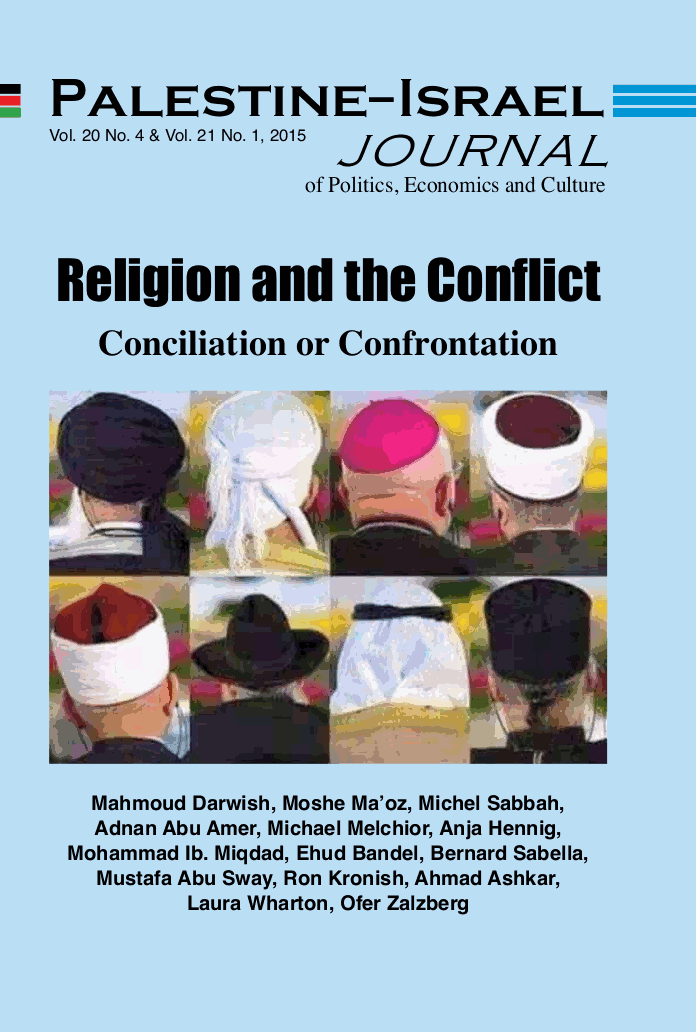The urge to worship has been an innate human need since the dawn of history. The feeling of human weakness and the mystery of a greater power controlling life was the motive behind that need. But the emergence of social and power structures and organized religions, led in many societies to a struggle among religious and political leaders, who in some instances succeeded in attaining authority over both spheres or claimed they ruled by divine mandate. One can say that this conflict was eventually resolved in Europe via the separation of religion and state.
Yet this is not the case with Islam and Judaism. While Islam is still witnessing a struggle among different factions and schools of thought about the relationship between the state and religion, Judaism has developed a unique situation where religion has become the basis for a national identity, encompassing both religious and secular Jews.
The three monotheistic religions, Judaism, Christianity and Islam, share many religious and human values in common, and at the same time are in conflict over certain political matters. The Arab-Israeli conflict, and particularly Israel’s occupation of the Occupied Palestinian Territories (OPT), has created a polarization between Israel as a Jewish state and Islamic movements who claim that this is a religious conflict that should only be dealt with as a religious struggle. The latter’s approach was enhanced by the emergence of Hamas (Islamic Resistance Movement) and the Islamic Jihad in Gaza and the sympathy they gained throughout the Islamic and Arab world.
The continuation of the Israeli-Palestinian conflict will continue to feed and breed religious confrontation between the two sides. The policy of today’s right-wing government in Israel to change the status quo pertaining to the Aqsa Mosque known as al-Haram al-Sharif/Temple Mount, in specific and the Holy places in Jerusalem in general by the Ottomans since 1852, will only intensify the dangers and escalate the confrontation between Muslims and Jews. Allowing Jews to conduct religious ceremonies at the site will incite violent Muslim reactions, escalate the confrontation and add oil to the fire.
Christianity is in the middle of the conflict and is not a part of it, though Christians and their holy places are becoming a target of attacks by fanatic religious Jews who denigrate and deny the rights of Islam and Christianity to exist.
However, politically speaking Christian Arabs in the OPT are an integral part of the Palestinian people and their national struggle against the Israeli occupation. Recent statics show a rise in emigration among, and a sharp decrease in, the Christian population, which has declined to almost only 1% in the Holy Land. It’s hard to imagine the Holy Land without Christians!
The Holy Land cannot be seen in isolation from the regional developments where we have witnessed in the last decade the outburst of violence among various ethnicities and religious factions, mainly Sunni and Shi'a. The Shi'a are associated with, and influenced by, Iran and its potential threat to Sunni countries — led by Saudi Arabia — which consider themselves the line of defense against Iran’s influence. We have also witnessed the troubling emergence of extremist Islamic movements such as al-Qaeda and the Islamic State (ISIS) with their agenda of creating a theocratic Islamic state.
In this issue of the Palestine-Israel Journal, we are exploring the local and regional factors related to confrontations between various groups claiming a monopoly over religion, examining the groups’ roots, motives, and political and factional agenda — and the possibility of reversing the process by seeking alternative options using religion to bridge the gaps between peoples and promote and disseminate the values of justice, equality, tolerance and co-existence that are shared principles at the foundations of all religions and humanistic philosophies.
Our belief is that the problem is not in the religions but in their false and tendentious interpretations. Our challenge is how to confront and defeat fanaticism and extremism by using their own tools in order to live together in full harmony, regardless of our religious or non-religious affiliations.

